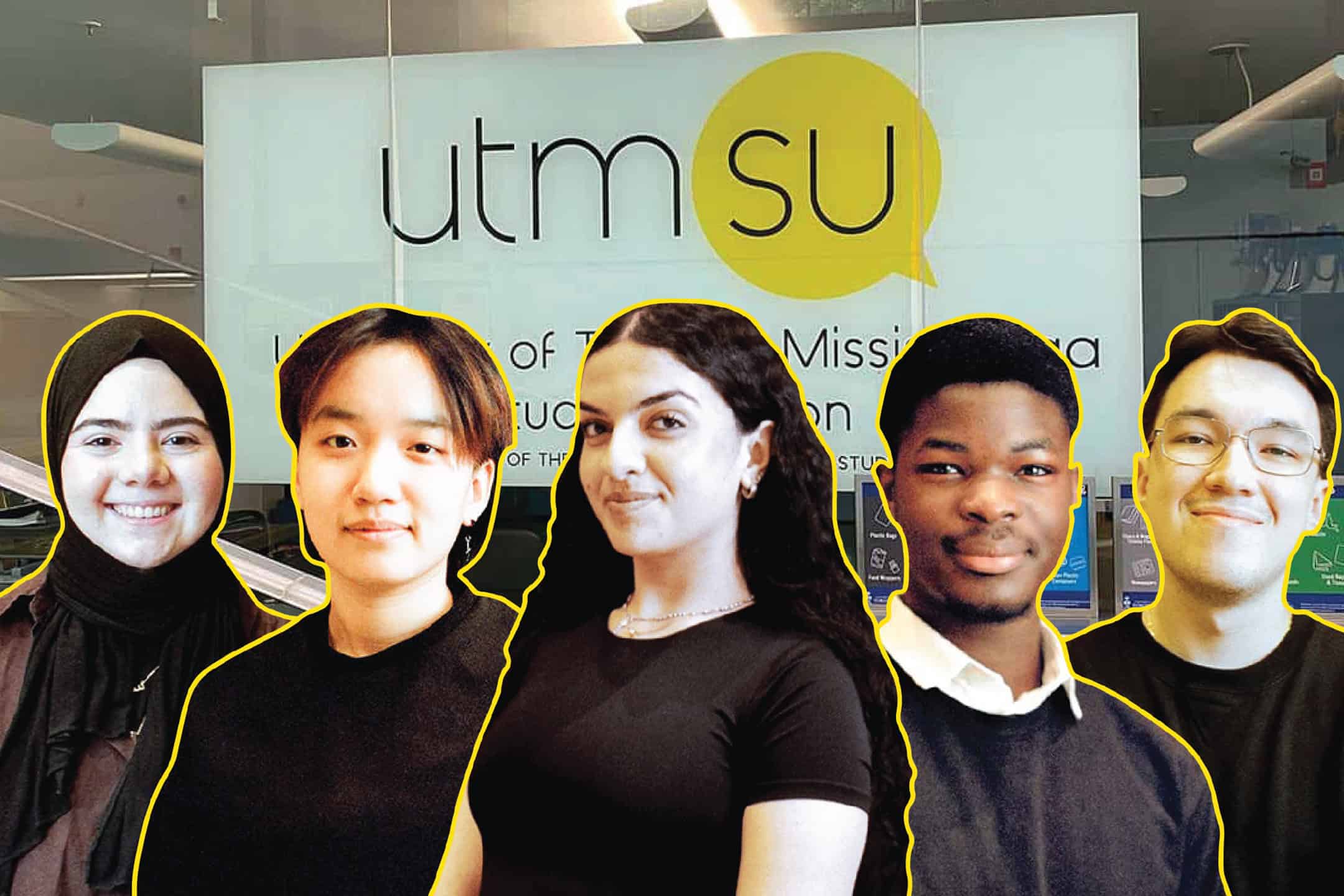At its first Board of Directors (BOD) meeting on May 31, the University of Toronto Mississauga Students’ Union (UTMSU) discussed its advocacy and inclusion efforts — such as its Refugee Sponsorship Program — and upcoming anti-war campaign, as well as a potential Credit/No Credit (CR/NCR) lobby. The board also elected members for its various committees.
Anti-war campaign
During the meeting, members discussed their ongoing efforts for advocacy and inclusion within UTM. Sidra Ahsan, vice-president university affairs, highlighted parts of her ongoing work in her executive update.
One topic of discussion was the Refugee Sponsorship Program. The program is offered through the World University Service of Canada, which assists one refugee sponsored by the union to attend UTM. The school covers tuition payments while the union provides residence and an allowance.
Ahsan mentioned that she has started the process of welcoming the new student who will be coming to Canada in the summer. She is also in contact with the previously sponsored refugee student to ensure they continue to receive assistance.
The UTMSU has also been organizing initiatives for Palestine amid the ongoing conflict. On May 16, the union organized a rally outside a U of T Governing Council meeting in UTM at the William G. Davis Building. The rally called on U of T to “disclose and divest from their support of the ongoing genocide against Palestinian civilians.”
The union has also participated in a working group for Palestine hosted by the Canadian Federation of Students (CFS). The union provided feedback, suggested edits to the CFS’ statements and graphics, and discussed an upcoming anti-war campaign advocating for peace in various conflicts around the world.
CR/NCR lobby
During the meeting, members discussed UTM’s CR/NCR policy and the potential for lobbying the UTM Board for new measures in the coming year.
CR/NCR allows students to complete courses without the grade affecting their grade point average. Instead of a grade, a “CR” or “NCR” will appear in its place. CR/NCR can be used for breadth requirement courses or other electives but cannot be used to satisfy program requirements.
Currently, UTSG, UTM, and UTSC students must make CR/NCR request on ACORN before the last day of course, meaning before their grades are released.
In her candidate statement, Ahsan mentioned that she hopes to “reform academic policies” and advocate for a revised CR/NCR system where UTM students can declare “NCR” after they receive their final grade.
In the meeting, Ahsan explained that the UTMSU’s goal is to lobby for this new policy and potentially make a joint effort alongside the Scarborough Campus Students’ Union.
“It is in the works… It’s just not at the forefront yet. But it’s something we plan to accomplish this year,” said Ahsan.
WeChat committee
The board members and executives also joined the UTMSU 2024–2025 academic year’s committees at the meeting.
The union’s committees make recommendations to the board and the executives. Each of them has a specific mission, which includes allocating club funding, providing financial aid to students in need, and addressing equity and inclusivity issues.
There are 10 committees in total: Budget Committee, Clubs Committee, Elections and Referenda Committee, Policy and Procedures Committee, Organizational Development and Services Committee, Executive Review Committee, Executive Committee, Bursary Committee, Orientation Committee, and the World University Service of Canada Committee.
In addition to these committees, the UTMSU’s executive director Felipe Nagata noted the importance of inclusivity in UTM, pointing to the WeChat committee that was formed in 2016.
WeChat is a Chinese messaging app that enables users to exchange text messages, make video and audio calls, play games, pay bills, and share posts with their social network. The app boasts over one billion monthly users.
The committee was founded to bridge the divide between Chinese international students and other parts of UTM. It is now composed of people fluent in Mandarin who host events and advocate for the Chinese international student community.
Nagata added that “over 60 per cent of international students are from China,” and highlighted the potential language barrier for these students. According to U of T statistics, Chinese international students represented 53 per cent of the total international student population in the 2023–2024 academic year.
Editor’s Note (August 12, 6:35pm): This article has been updated to reflect that CR/NCR can be used for both breadth requirement courses and electives. A previous version of this article also stated that UTSG students can request CR/NCR after their final grades are available. In fact, none of U of T’s campuses allow students to request CR/NCR after final grades are released.



No comments to display.